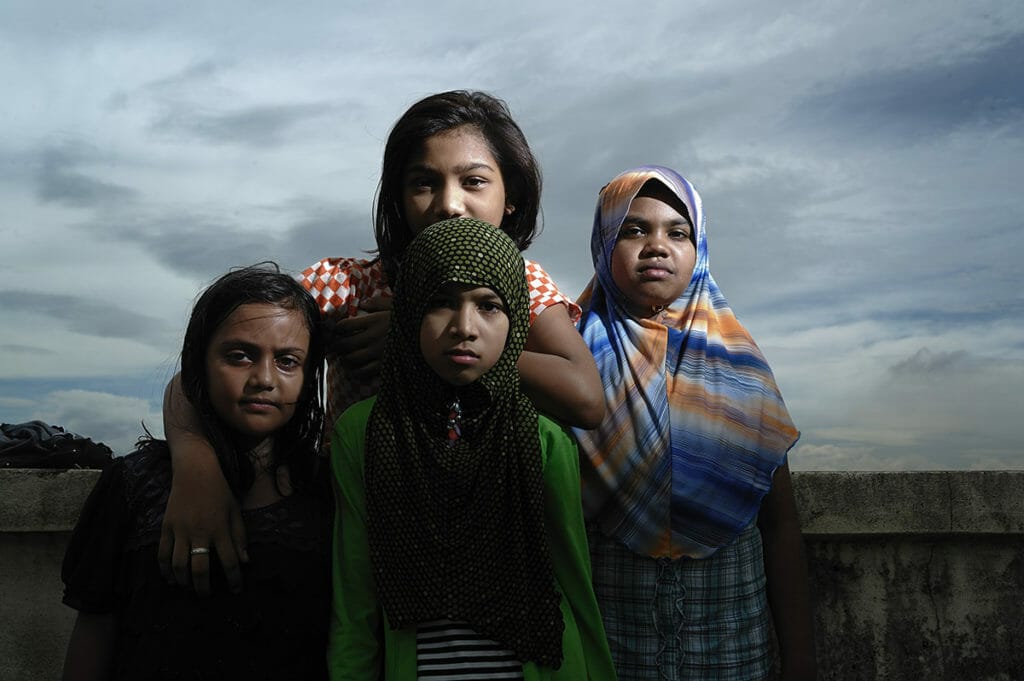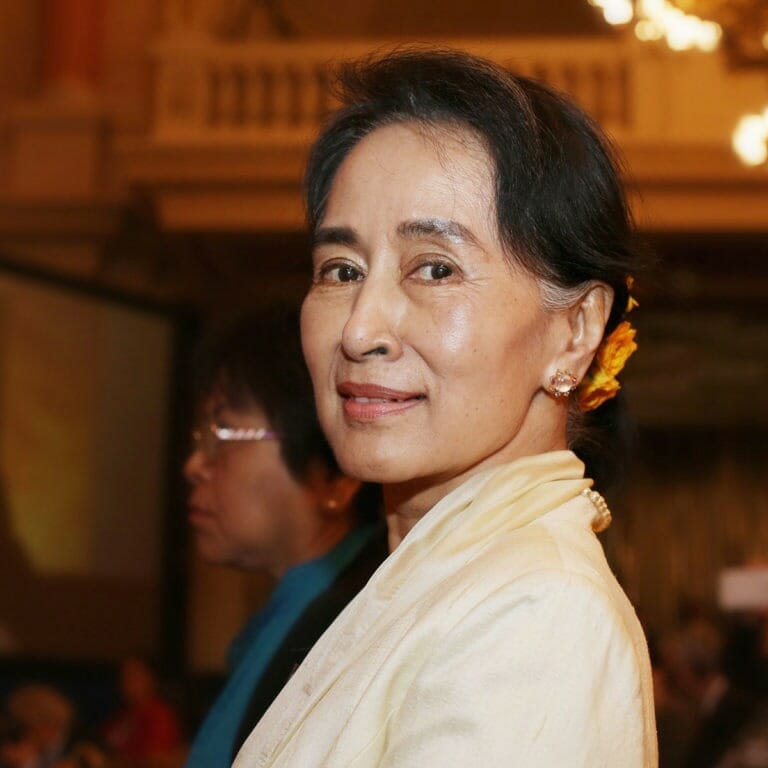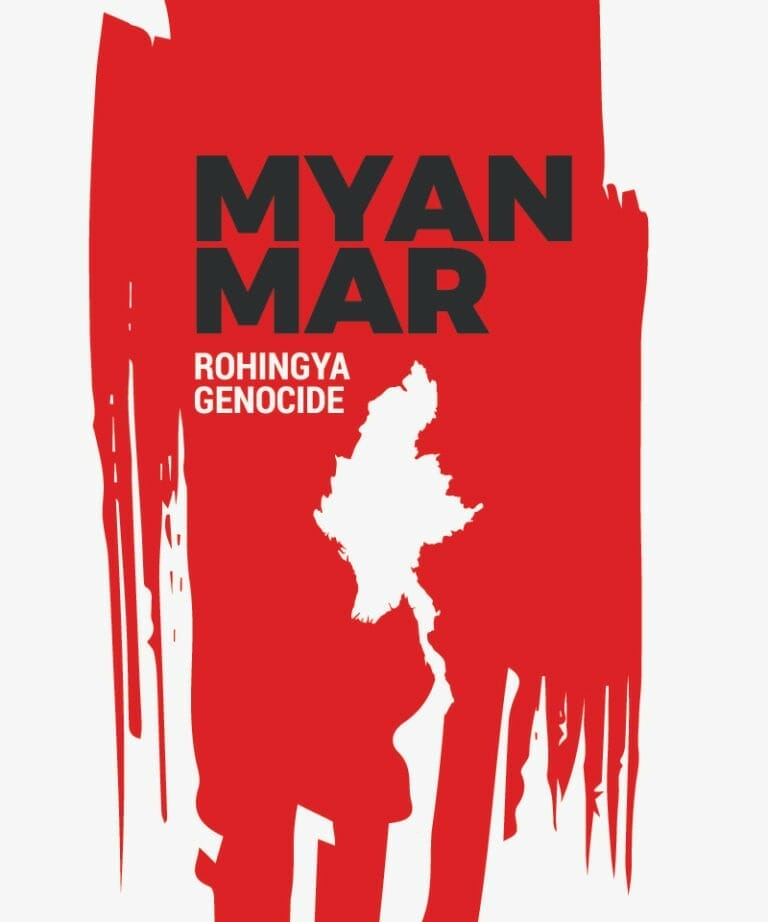Since 1948, when it gained independence from British rule, Myanmar (Burma) has been burdened by much unrest because of many different racial tensions, as well as political and economic agendas. The recent conflict between the Buddhists and Rohingya Muslims has drawn global attention and has become a topic of heated discussion, debate and accusations in many aspects. Aung San Suu Kyi government’s accelerated military retaliations and the ensuing xenophobic and Islamophobic propagated responses to the most recent attack on August 25th by ARSA (Arakan Rohingya Salvation Army) on Myanmar security outposts in the northern Rakhine state broaden the Rohingya issue to different perspectives. This has raised so many concerns, not only to those affected people and that of Myanmar’s peaceful democratic transformation, but also towards the stability of the region and, most importantly, to the very core definition of human morality.
The overwhelming dissemination of evidence from the media from both sides is, in fact, fuelling the hatred, and is not just limited to the people affected by the conflict, but also to the observers, both locally and worldwide. Despite having views of different realities from the previous military regime and Rohingya minorities, the reluctance of the Myanmar government, Aung San Suu Kyi and her apologists to recognize the word “Rohingya”, their entitlement in the country and their almost half-a-century long suffering from systematic oppression, inequality and abuses, alarmingly reveals Myanmar’s definition of morality and what a kind of nation it has become. It would be wiser if we could all understand the way that differently constructed realities have influenced the conscience of Myanmar since independence.
Throughout its history, the rendering of conflicting realities between the Burmese majority and ethnic minorities in Myanmar has been the main source for almost all civil unrest since independence. The dichotomous historical narratives of the Burmese majority (instituted by Ne Win in 1962 and imposed upon the population until 2011) have always been in contrast, and mutually exclusive, to almost all individual histories of ethnic minorities living in Myanmar. Along with the distorted histories, the xenophobic ideology and the racial and religious discrimination, there has always been the indoctrinated fundamental tenets in light of the sovereignty of the nation, Burmanization mechanism and the ethno-nationalist movement.
While most of the world advances to the next level of consciousness, almost all Myanmar people are still stuck in the 1960s mindset . . .
The systematic destruction of education, the discrimination against ethnic and religious minorities and the self-imposed isolation of the nation from the international community by the previous totalitarian regimes, has distorted the fundamental definition of what it is to be human and what it is to be universally right or wrong? While most of the world advances to the next level of consciousness, almost all Myanmar people are still stuck in the 1960s mindset (eg: polarization, cynicism, etc.,) and its inherent ideologies.

Kuala Lumpur, Malaysia – Childrens of Rohingya refugee living in Malaysia. The Rohingya refugee crisis has led to the mass migration of thousands of Rohingya people from Myanmar. Image | AMRUL AZUAR MOKHTAR / Shutterstock.com
88% of Myanmar’s population practices Buddhism and the beliefs of Karma and the inherent mode of ontological contemplation is well practised among them. However, the conservative education system, the propagated narratives of histories and the lack of unbiased information constraints on the peoples’ intellect’ and, instead of becoming well-informed and morally conscious people, they are reduced to being bigotry mongers and rumours driven people. It is clear that Buddhism is not immune to radicalization, given significant examples such as 969, Wirathu (the face of Buddhist terror) and the Ma Ba Tha (the Association for the Protection of Race and Religion) gaining popularity among their followers by preaching anti-Islamic dogma throughout the country.
Quite distinctly, discrimination against race, religion, gender or any social status is becoming a socially acceptable gesture in almost every community in Myanmar. Harassment, such as using hurling derogatory slurs in public places, sexism or victim blaming, is never thought as being morally unacceptable behaviour in the country. In fact, the previous governments never held back when making racial or religious insults against ethnic or religious minorities. It was not long ago that speaking about human rights in public places had been treated as a criminal act and often led to jail convictions. Undeniably, the previous leaders of the country have failed to maintain the acceptable moral standards to govern effectively and justly and this failing has allowed them to commit many atrocities against innocent civilians, exploit natural resources, and orchestrate the abuse of power with impunity. As of today, transitional justice was never part of the democratization process and historical justice was never a concept to strive for.
In spite of the unfortunate realities, the emergence of Aung San Suu Kyi (the daughter of Myanmar’s father of independence Aung San) into Myanmar’s political arena in 1988, and her involvement in the revolutionary movement, gave fresh hope to Myanmar people. Myanmar-born but raised in India, she graduated from Oxford and worked at the UN. This composite background, has gained a lot of respect not just from the people of Myanmar but also globally. Her newly-formed party, the NLD (National League for Democracy) won 81% of the votes in the 1990 election but the results were nullified by the junta. Under the oppressive military regime, her perseverance over non-violence and her strong and resilient moral stance won her the Nobel Peace Prize in 1991. Her speeches about human rights, democracy and freedom from fear became a source of moral inspiration for many people living under the tyranny of the military regime. Even though she opposed the military-imposed and carefully-instrumentalised 2008 constitution on the grounds of democracy, equality and human rights, the US was able to convince her to step onto the political stage through the 2012 by-election.

Do Aung San Suu Kyi | Nadezda Murmakova / Shutterstock.com
Coincidently, it was in June 2012, shortly after Suu Kyi became a member of parliament, that violent clashes broke out starting from the Rohingya conflict area (Maungdaw) and later spreading to a number of major cities in Myanmar. She expressed that the mismanagement of the previous military regime and the failure to preserve the rule of law were the major causes of the outbreak of conflict. She also made clear her stance that she would not take any sides on the issue as she attempted to solve the problem and, from that moment on, she has extricated out of that conflict and revealed no view over the issue. However, she has not shown any sign of sympathy or empathy towards Rohingya people, other than confirming her rejection of the Rohingya as a minority of Myanmar and refuting the long history of those peoples’ existence in Myanmar by classifying them as illegal immigrants from Bangladesh. That would somehow clearly indicate that she has taken sides with the Buddhist majority.
During the recent conflict, she has been constantly sending condemning messages about the terrorists and sympathising with the Rakhine Buddhist people. She has emphasised the emergency relief for those people but has never expressed any empathetic feelings and/or words for the approximately 400 Rohingyas killed by the military clearance operations or the 400,000 civilians who have fled into Bangladesh because of the military operations.
In light of her espousal of human rights, her recent comments about the Rohingya being not a race but merely illegal immigrants from Bangladesh sits uncomfortably with her previous statements on the plight of the oppressed. On June 16 2012, as she was accepting the Nobel Peace prize, she uttered these immortal word …
Ultimately our aim should be to create a world free from the displaced, the homeless and the hopeless, a world of which each and every corner is a true sanctuary where the inhabitants will have the freedom and the capacity to live in peace.
She rightly explained that the situation was “simply the tip of a huge Iceberg of Misinformation”. It is true that there is a great risk of emerging cross-border terrorism in the region but, at the same time, there is also great debate about historical accounts from both sides, with violent crimes being committed by the two communities. Nonetheless, what she is ignoring is that the Rohingya people have been denied their identity and existence, let alone a dignified life, as they have been living in isolation from the rest of the country for nearly a century. By ignoring this injustice and oppression, under which Rohingya people have been suffering, she is implying that she is not with with them but siding with the Buddhist majority.

Her lack of empathy and the silence for the Rohingya Muslim victims has sent out a strong message to her own people as well as to all humanity. She has failed to show that she’s not just a leader for Buddhist people but also for all other minorities. In this respect, she has failed the test of humanity. Now, almost all Myanmar people are overwhelmingly using derogatory slurs against Rohingya people across all electronic news platforms, expressing hatred not just against Rohingya people but also to all Muslims. It is now intrinsically, but easily, regarded to be a national traitor if someone just shows any sign of sympathy or empathy towards Rohingya or Muslims. Many activists and practitioners of human rights, peace and conflict, gender equality and other social and civil rights are now joining the anti –Muslim chorus, expressing xenophobic sentiments and shouting racist slogans but ignoring their humanitarian and moral obligations. In being the personality cult to many people of Myanmar, Aung San Suu Kyi’s silence simply demonstrates that this deeply entrenched racism and Islamophobic attitude is somehow, and to some extent, acceptable to her moral standards.
It is an alarmingly and historically evident that, with the kind of attitude and morality of the people, could push more oppressed, discriminated and forgotten people to join radicalized terrorist groups as a last resort. Certainly, this would never realise positive peace in the region, let alone Myanmar.
Many would believe that a country built without the tenets of a strong moral foundation – to respect every human’s dignity – is not a country to have respect for. Has Aung San Suu Kyi given up her high standard morality for a political reason? A poisoned chalice?
Myanmar is now at the crossroads of history – which road will it choose to follow or “go down”? Upon accession to parliament, Aung San Suu Kyi was heralded as an icon of human rights, but she now finds herself in a moral dilemma, holding the poisoned chalice, and facing those two conflicting choices – moral rectitude or political expediency.
Sai Kyi Zin Soe
* Opinions expressed in this article are the author’s own and do not necessarily reflect FORSEA’s editorial stance.
Banner| Cox’s Bazar, Bangladesh – October 2017: Rohingyas fleeing from persecution in Myanma.on hold at the border. Image | Sk Hasan Ali / Shutterstock.com

